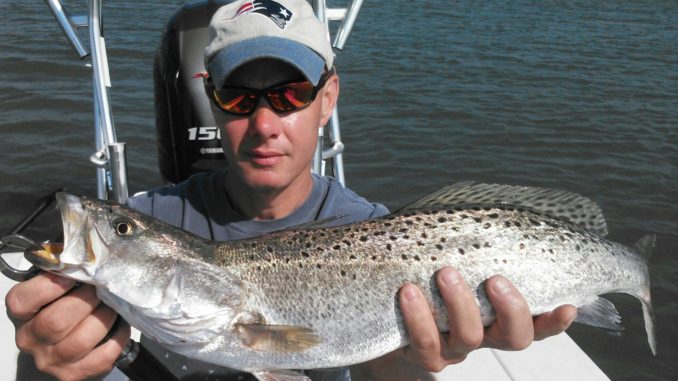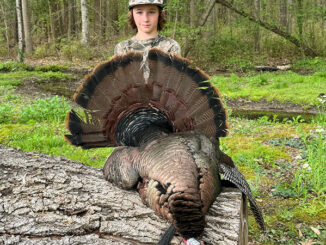
For big Little River specks this month, go with bigger baits and deeper water.
The Atlantic Intracoastal Waterway stretches 3,000 miles from New Jersey to Texas, built primarily as a safe haven for military and commercial transport along the eastern seaboard.
The Atlantic Intracoastal Waterway stretches 3,000 miles from New Jersey to Texas, built primarily as a safe haven for military and commercial transport along the eastern seaboard.However, the “ditch” provides many more positive benefits other than its intended use, and in the 5-mile section between the small fishing village of Little River to the North Carolina state line, the big benefit this month is speckled trout. Anglers visiting Little River can expect every boat ramp to fill up with both local and out-of-towners who dive into the fantastic action on specks.
The ICW provides an aquatic corridor for migratory fish, and the constant influx of nutrient-rich freshwater makes for a perfect storm of baitfish, crustaceans and massive schools of gamefish, and the Little River segment is just that. Add a strings of docks, marinas and congested underwater obstructions to the mix, and it’s 5 perfect miles for speckled trout to pack on the pounds with much colder temperatures on the horizon. David Cutler of Lowcountry Fishing Charters knows that November is the height of the speckled trout run in this neck of the woods, and he’s careful not to miss any of it.“We traditionally catch boatloads of trout in November,” said Cutler, who said it’s not uncommon to catch a limit in just a few minutes when conditions are right. “There is a lot of freshwater influence and tons of bait that brings the trout in by the thousands.”
Speckled trout are typically reliant on current to fill their food bags, and the currents in the Little River area play right into the speckled trout’s playbook. “In nearby places like Tubbs Inlet and the Shallotte River near Ocean Isle Beach (N.C.), there is always a settling time during tide changes, but in Little River, there is not a stall period. It’s the constant current in the ICW that makes this area so productive this time of year.” Cutler fishes from the North Carolina line south




Be the first to comment